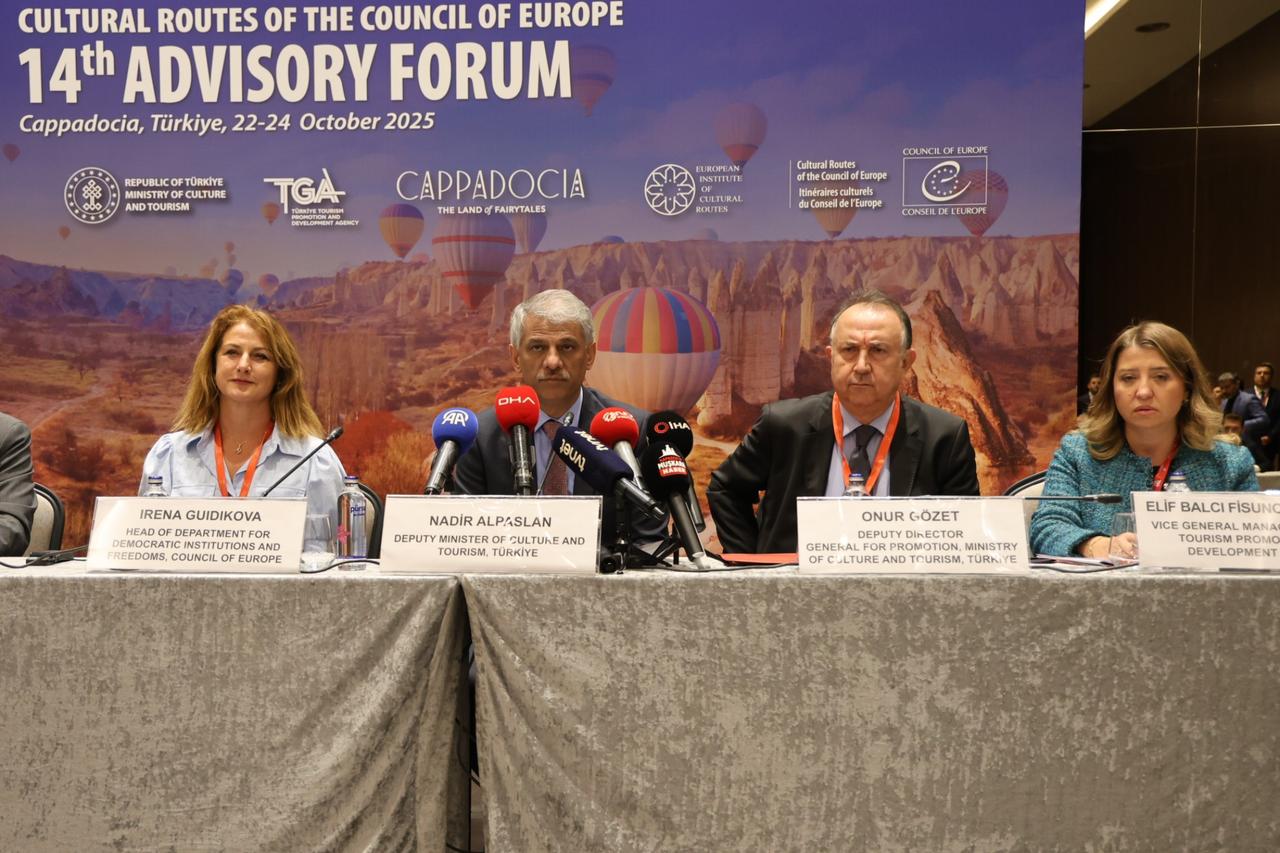
The 14th Annual Advisory Forum of the Council of Europe Cultural Routes began this week in Cappadocia, bringing together international participants to discuss cultural heritage, sustainable tourism and cross-border cooperation.
The event, held at the Marriott Cappadocia Hotel, marks a significant recognition of Türkiye’s growing role in Europe’s cultural network.
Deputy Minister of Culture and Tourism Nadir Alpaslan and Irena Guidikova, Head of the Council of Europe’s Division of Democratic Institutions and Freedoms, attended the opening session.
Deputy Minister Alpaslan said Türkiye has been an active participant in the program since 2018. “When Türkiye joined, there were four certified cultural routes. Today, that number has increased to eleven,” he noted, describing the progress as a reflection of national cooperation among local authorities, universities, development agencies and community organizations.
Alpaslan added that the ministry continues to actively support the program to promote the country’s cultural richness at an international level.
“This approach combines the preservation of cultural heritage with the support of local development in a holistic way,” he said.
Alpaslan emphasized that hosting the forum in Cappadocia was no coincidence. “Cappadocia is a unique geography where nature, history, and culture intertwine,” he said.
“On the 25th anniversary of the European Landscape Convention, we are happy to welcome our guests from across Europe to this special setting that reflects the principles of the Cultural Routes program.”
Council of Europe official Irena Guidikova described Türkiye as a strategic member of the Cultural Routes Program.
“Eleven of the forty-nine cultural routes in Europe pass through Türkiye,” she said. “This makes Türkiye not only a bridge to Southern Europe but to the entire continent.”
Guidikova highlighted that Cappadocia stands at the center of key certified routes such as the European Route of Ceramics and Iter Vitis, also known as the Wine Route.
“These routes allow visitors to learn more about Cappadocia, increase its visibility, and contribute to the growth of local tourism,” she said.
Guidikova said such gatherings strengthen cooperation among cultural operators, tourism professionals, academics, and policymakers. “Events like this increase the visibility of Europe’s cultural heritage and help build strong networks across the continent,” she stated.
The Cultural Routes of the Council of Europe program was launched in 1987 to promote the shared cultural heritage of Europe, support local economic development, and encourage sustainable tourism.
This year’s forum, attended by 350 participants, is being held in Cappadocia throughout October.
It is expected to contribute to Türkiye’s international visibility in culture and tourism while emphasizing the importance of preserving cultural heritage through cooperation.